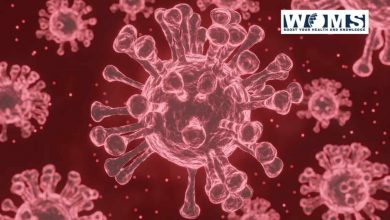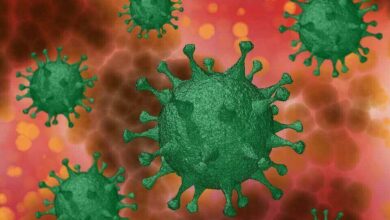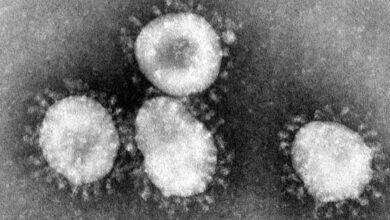A COVID-19 Variant: BF.7 Detected in India

As China is suffering from a fresh layer of the coronavirus, fears are arising around the globe regarding the new variant of COVID-19. Recently, India has started the retesting procedure for international passengers because of the new cases of Omicron subvariant BF.7. India has reported four cases of the newer Omicron variant BF.7. BF.7 is driving a huge fear among the public of China because of the high surge in China.
The BF.7 is following the hierarchy of the previous Omicron variant BA.5. China is experiencing another wave of COVID-19 sub-variant virus. India also experienced almost four cases of this newer variant BF.7. Two cases are from Gujrat and the other two are from Odisha. This sub-variant has also been found in various other countries, including Belgium, Germany, France, the United States, and the United Kingdom.
What is this BF.7 variant?
The BF.7 virus is one of the variants originating from the Omicron BA.5. According to the PTI, this virus exhibits a very short incubation period with a high transmission potential. In addition, this BF.7 variant has a greater capacity to re-infect and can even affect vaccinated people.
There are multiple ongoing studies regarding this newer Omicron variant BF.7. According to a study in the journal “Cell Host and Microbe“, the BF.7 variant has 4.4 times increased neutralization resistance potential than the original Wuhan virus. It explains a more significant mutation potential in the newer variants. Moreover, it indicates that the antibodies from the previous vaccines are ineffective against this virus.
What are the common symptoms associated with this BF.7 variant?
The newer variant of COVID-19, BF.7, presents a variety of symptoms related to infections of the upper respiratory tract. The most common symptoms include fever, cough, runny nose, and sore throat. In addition, BF.7 also causes congestion in the higher regions of the chest and closer areas of the throat. Moreover, there are some cases of patients suffering from stomach problems with this BF.7 variant. These symptoms include diarrhea, nausea, and vomiting.
If someone is suffering from a combination of these symptoms, you must get tested immediately. This newer variant is not associated with increased severity levels but can spread to nearby communities rapidly. Early detection and isolation is the primary key to the possible treatment protocols.
What are the precautionary measures regarding this newer BF.7 variant?
The precautionary measures for this newer variant are quite similar to the previous variants of COVID-19. As it is peak time for the celebration moments regarding Christmas and New year, you just need to follow the precautions against the COVID-19 virus. These are the precautionary protocols to follow:
- Wear a mask in public and gatherings
- Maintain a social distancing
- Sanitize your hand when you shake your hand or while you touch any open surfaces
- Avoid contact with people who are suffering from this newer variant.
- Avoid international visits as the European countries are facing serious concerns regarding this newer variant BF.7.
- Follow the protocols issued from the government advisory regarding the prevention of this newer variant BF.7.
These are the fundamental protocols to follow to prevent the spread of this newer variant BF.7. Sneezing, coughing, and colds are common in these months. But don’t ignore these symptoms.
What can be the associated factors regarding the transmission of this newer variant BF.7?
There are several factors associated with the transmission of this newer variant BF.7. One of the main factors is not following the basic protocols issued by the Government. The other factors may include lower immunity levels. Decreased immunity can be a major culprit regarding the spread of this newer variant. So people with extreme age limits like infants and older people should be careful regarding this newer variant.
This newer variant has a high transmission pattern in people with lower immunity levels. So people suffering from different heart, lung, kidney, liver, or any cancerous growths must be extra careful about this new variant BF.7. Moreover, people undergoing chemotherapy or radiotherapy should also take care regarding the specific symptoms of this BF.7 variant.
What is the current situation regarding this newer BF.7 variant in India?
With the emergence of the four confirmed cases of this new variant, BF.7, Health minister Mansukh Mandaviya advised the people to follow the basic precautions. He stated in a tweet, “COVID is not over yet. I have directed all concerned to be alert and strengthen surveillance. We are prepared to manage any situation.”
Additional Chief Secretary of Health, Manoj Agarwal, briefed the news agency ANI that the central government explained to all states to confirm the proper screening of international passengers and genome sequencing.
China is undergoing a surge of this newer variant due to the decreased immunity levels because of the previous COVID-19 outbreak.
Conclusion
A COVID-19 newer variant, BF.7, reported in the population of India. Four cases are confirmed up till now. BF.7 is the subvariant of the previous Omicron BA.5 variant. This newer variant has a high transmission potential but a smaller incubation period. In addition, the newer variant has a low virulence rate indicating a decreased severity of the symptoms. The common symptoms of this new variant include fever, flu, cough, sore throat, and runny nose. In addition, this variant is also associated with stomach problems like diarrhea and vomiting.
If you find any combination of these symptoms, you must get covid tested as soon as possible. It will help to detect the virus and get treated immediately.
Frequently asked questions (FAQs):
Is the newer variant BF.7 serious?
This newer BF.7 variant is the subvariant of the Omicron BA.5 variant. This newer strain is highly infective but presents a low virulence rate as compared to the previous strains.
What are the possible reasons regarding the only four cases of the BF.7 variant?
The Indian community has gained herd immunity from the previous outbreaks of the COVID-19 virus. However, people must be careful regarding the transmission and infection from this newer variant BF.7.




